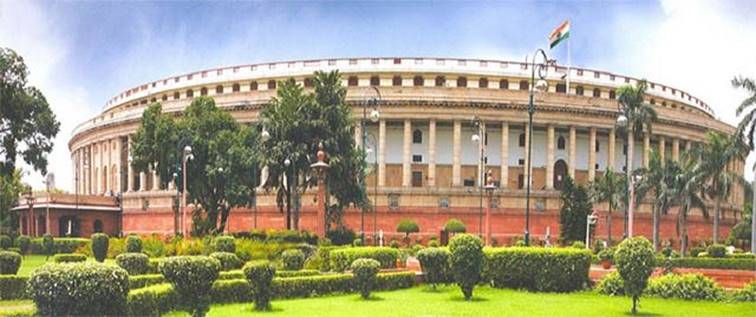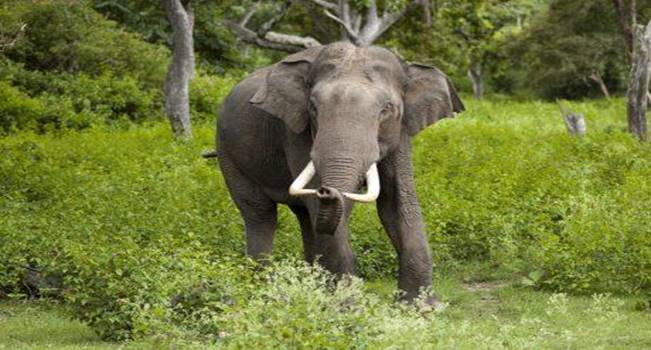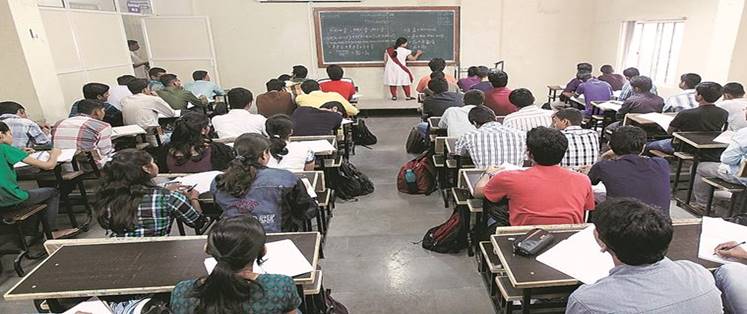



Private Bill urges state election funding
Private Bill urges state election funding
News Important for: GS Paper – 2 I Bills
Context
A Private Members Bill moved in the Rajya Sabha recently, seeking to remove the limit and state funding of elections as part of reforms to the way polls are financed in India.

Analysis
â— The move seeks to amend The Representation of the People Act and asserts that the limit to be counterproductive and helpful to only those with black money to bribe individual voters.
The key proposals of the Bill are:
â— The current per candidate expenditure limit of Rs 70 lakh should be lifted.
â— There should be state funding to ensure a “cleaner polity”
â— Hence instead of imposing a limit, transparency should be brought in.
â— All expenses should be put in the public domain.
Problems stated by the member:
â— Prohibitions imposed by idealistic laws are counter-productive.
â— The actual expenditures are driven underground which sets in motion a vicious cycle.
â— Once elected the representatives try to reward those who contributed to their victory.
â— MPs under the law declare less than what they actually spend on their elections because the truth would result in their disqualification.
Proposed solutions
â— The candidates should be allowed to legitimately raise funds as the candidates who cannot raise white money openly cannot spend more than Rs 70 lakh in parliamentary elections, therefore affecting the clean politicians.
â— State funding of elections is the only way to cleanse the system.
â— National Election Fund is proposed, under which each political party could be allotted funds according to their recent electoral performance.
|
Private Members Bill â— A Member of Parliament who is not a Minister (i.e. not a member of the Government) is regarded as a Private Member. â— A Bill introduced in either house of Parliament by any such Member of Parliament is called a Private Member’s Bill. â— Bills introduced by Ministers are called Government Bills. â— PMBs can deal with any issue; they can also be Constitutional Amendment Bills or Money Bills. â— The only difference is in terms of the process followed outside Parliament. â— Government Bills are often deliberated upon and approved by the Council of Ministers before being introduced. This is not done for PMBs.
|
Source link:
Kerala may have undercounted jumbos
News Important for: GS Paper – 3 I Biodiversity
Context
Kerala has recently conducted the elephant census as a part of project elephant.

Analysis
â— In the latest elephant census, Kerala may have undercounted almost 2,700 elephants.
â— According to figures of Elephant census collated from 23 states , in 2017 there were 27,312 elephants on average in the country, a decline from the 29,576 elephants recorded as the mean figure in 2012.
â— The average elephants are 29,964 according to the updated 2017 figures which is a slight increase from 2012’s mean.
Project Elephant
â— It was launched in 1992 by the Ministry of Environment and Forests, Government of India.
â— To provide financial and technical support of wildlife management efforts by states for their free ranging population of wild elephants.
â— Aims to ensure long-term survival of viable conservation reliant populations of elephants in their natural habitat by protecting the elephants, their habitats and migration corridors.
|
Types of elephant counting
Direct Counting â— When elephants are sighted and directly counted. â— It is said to be a more reliable method of counting.
Indirect counting â— When the no of elephants is estimated by dung sighting. â— Kerala government has used the same method. â— It is unreliable and faulty.
|
Source link:
Substandard teacher training institutes to be shut down
News Important for: GS Paper – 2 I Government Policies and Interventions for Development in education.
Context
The National Council for Teacher Education has begun the process of eliminating substandard teacher training colleges on the recommendation of the draft National Education Policy.

Analysis
â— The process of reviewing the performance of the institutions and closing down the corrupt or substandard ones will be immediately initiated through mandatory accreditation of all TEIs (Teacher Education Institutions) as multidisciplinary HEIs (Higher Education Institutions) within the next 3-5 years.
â— The All India Association of Private Colleges, with a membership of more than 9,000 training institutions, admits that a large proportion may need to be closed being substandard which is about 25-30%.
The National Council of Teacher Education (NCTE)
â— The National Council for Teacher Education (NCTE) is a statutory body of Indian government set up under the National Council for Teacher Education Act, 1993.
â— It was set to formally oversee standards, procedures and processes in the Indian education system.
â— This council functions for the central as well as state governments on all matters with regards to the Teacher Education and its Secretariat is located in the Department of Teacher Education and the National Council of Educational Research and Training (NCERT).
Role played by NCTE in improving the quality of education
â— Regulation of teacher training institutes.
â— Recruitment of well qualified teacher through various exams like NET.
â— Running teacher education program like B.Ed and M.Ed
â— Role played in planning and development of teacher education institute.
â— Providing course curriculum direction, desirable institutional architecture to TEIs.
â— Setting of required qualification of Teachers Eligibility.
â— To undertake survey and studies relating to various aspects of teacher education system
â— Coordination and monitoring teacher education and it's development in the country
â— It lays down the minimum education required to person as teacher in school
The National Council for Teacher Education (Amendment) Bill, 2017
â— The Bill introduces a one-time measure to grant retrospective recognition or permission to such institutions or courses, as the case may be, by suitably amending Sections 14 and 15 of the 1993 Act.
â— The amendments include granting retrospective recognition to institutions funded by the Central or State government or the Union Territory administration, and as may be notified by the Central government, which offered teacher education courses on or after the appointed day till the academic year 2017-2018.
â— It proposes to amend Section 15 to grant retrospective permission to the new course or training in teacher education offered by the institutions, as may be notified by the Central government, on or after the appointed day till the academic year 2017-18.
â— Retrospective recognition of certain teacher education institutions: The Bill seeks to grant retrospective recognition to institutions: notified by the central government, funded by the central government or state/union territory government which does not have recognition under the Act.
â— Which must have offered teacher education courses on or after the establishment of the NCTE until the academic year 2017-2018.
Source link:
China, Russia, France share satellite data on Assam floods
News Important for: GS Paper – 2 I India and its Neighbourhood- Relations
Context
Russia, China and France are collaborating with India by sharing satellite images of Assam districts.
About
â— India, France, China and Russia all are members of The International Charter Space and Major Disasters.
The International Charter Space and Major Disasters
â— It is a venture between 17 space agencies to provide free satellite data in case of disaster in any signatory country.
â— The Charter is a worldwide collaboration, through which satellite data are made available for the benefit of disaster management.
â— By combining Earth observation assets from different space agencies, the Charter allows resources and expertise to be coordinated for rapid response to major disaster situations; thereby helping civil protection authorities and the international humanitarian community.
â— This unique initiative is able to mobilise agencies around the world and benefit from their know-how and their satellites through a single access point that operates 24 hours a day, 7 days a week and at no cost to the use
â— As signatories to the The International Charter Space and Major Disasters, any of the 32 member countries can send a ‘request’ to activate the Charter.
â— This would immediately trigger a request by the coordinators to space agencies of other countries whose satellites have the best eyes on the site of the disaster.
â— Since 2000, when the Charter came into operation there have been about 600 activations and data from 61 satellites have helped with disaster operations in 125 countries.
â— Based on an activation request by the Indian Space Research Organisation (ISRO), France’s National Centre for Space Studies, China National Space Administration and ROSCOSMOS of Russia shared satellite images of the flood situation in Assam districts.
â— This is a “standard practice” and in the past ISRO too had provided information to other space agencies in response to similar requests.
â— In August 2014, for instance, ISRO’s CARTOSAT shared images after an activation request from China after an earthquake struck Yunnan province and killed 398.
Source link:
Plea seeking to legalise cannabis for medical use dismissed
News Important for: GS Paper – 3 I Healthcare, Medicine
Context
A petition seeking to legalise cannabis which is a banned drug was filed in the Delhi High Court recently.
Analysis
â— The Delhi High Court dismissed the petition stating that there was no substance in the petition and that it can only be done through proper enactment under NDPS Act.
â— The plea said that cannabis has been erroneously treated as a criminal justice issue instead of a public health issue and it is high time that these errors should be corrected.
Narcotics Drugs and Psychotropic Substances (NDPS) Act, 1985
â— It prohibits a person to produce/manufacture/cultivate, possess, sell, purchase, transport, store, and/or consume any narcotic drug or psychotropic substance.
â— The Act extends to the whole of India and it applies also to all Indian citizens outside India and to all persons on ships and aircraft registered in India.
â— The Act is designed to fulfil India’s treaty obligations under the Single Convention on Narcotics Drugs, Convention on Psychotropic Substances, and the United Nations Convention against Illicit Traffic in Narcotic Drugs and Psychotropic Substances.
Source link:

© 2026 iasgyan. All right reserved